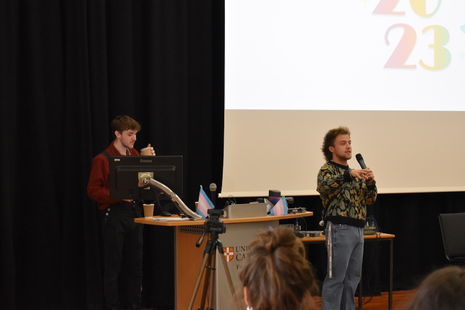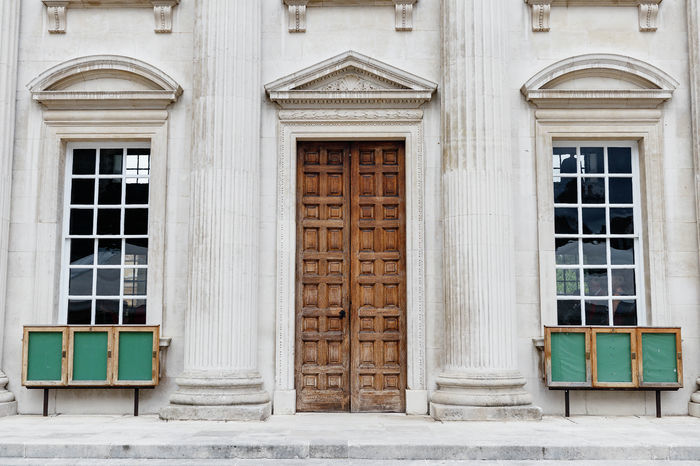Queer Studies conference ‘zoom-bombed’ with sexually explicit material
The conference’s video call, visible to in-person and remote attendees, also displayed content from notorious social media influencer Andrew Tate

The Cambridge Queer Studies conference, which took place on Saturday (13/05), was ‘zoom-bombed’ after multiple online attendees broadcasted “sexually explicit and inherently homophobic and misogynistic content” to both online and in-person attendees.
The conference’s organiser, Jordan McLellan, described the incident as an “inherently violent […] attack” which “disturbed the safe space that had been created for and amongst the Queer community.”
The conference, organised by the Faculty of Education and held at Homerton College, was intended to “bring together the queer community and share research that unites us in solidarity against violent political movements,” said McLellan in an email sent to Education students. In the same email, head of faculty Professor Hilary Cremin expressed her “abhorrence of behaviour that undermines our supportive research culture.”
The event had been running as planned until the afternoon, at which point the speaker, MPhil student Fu Ge Yang, was interrupted by explicit content on the call. The disruption began with a video of a man masturbating, at a volume so high that McLellan thought the “speakers almost broke.”
Yang’s presentation, on transgender and gender nonconformity in post-war Japan, was the first of the day that dealt explicitly with transgender topics, the organiser noted.
The video was followed by a succession of audio and visual recordings of Andrew Tate, a social media personality well-known for espousing misogynistic and violent beliefs. The names of the video call participants were changed to nicknames related to Tate, such as ‘Top G’.
McLellan brought an end to the disruption nearly a minute after it began, but it was enough to impact the remainder of the event. The speaker following Yang cancelled, and a poet felt unable to deliver their planned reading later on.
Reactions among the audience varied. Many were shocked, while others, notably academics, were “stone-faced” – having priorly experienced similar incidents. McLellan also mentioned a ‘zoom-bombing’ at Durham University in 2020.
Despite the “heart-breaking” incident, McLellan praised the “professionalism” and “solidarity” displayed. Attendees later found opportunities to discuss the attack, and the event ended with a drag performer who “made light” of the disruption, which helped “settle everyone.”
The conference organisers hosted an “open conversation” on Tuesday to support those affected, and circulated various emails via the Education Faculty.
 News / Colleges charge different rents for the same Castle Street accommodation2 March 2026
News / Colleges charge different rents for the same Castle Street accommodation2 March 2026 News / King’s hosts open iftar for Ramadan3 March 2026
News / King’s hosts open iftar for Ramadan3 March 2026 Theatre / Lunatics and leisure centres 4 March 2026
Theatre / Lunatics and leisure centres 4 March 2026 News / Angela Merkel among Cambridge honorary degree nominees27 February 2026
News / Angela Merkel among Cambridge honorary degree nominees27 February 2026 News / News in Brief: waterworks, wine woes, and workplace wins 1 March 2026
News / News in Brief: waterworks, wine woes, and workplace wins 1 March 2026








